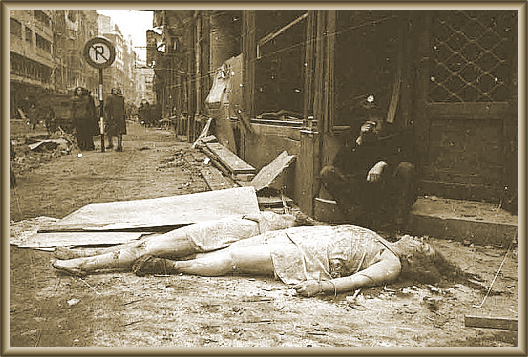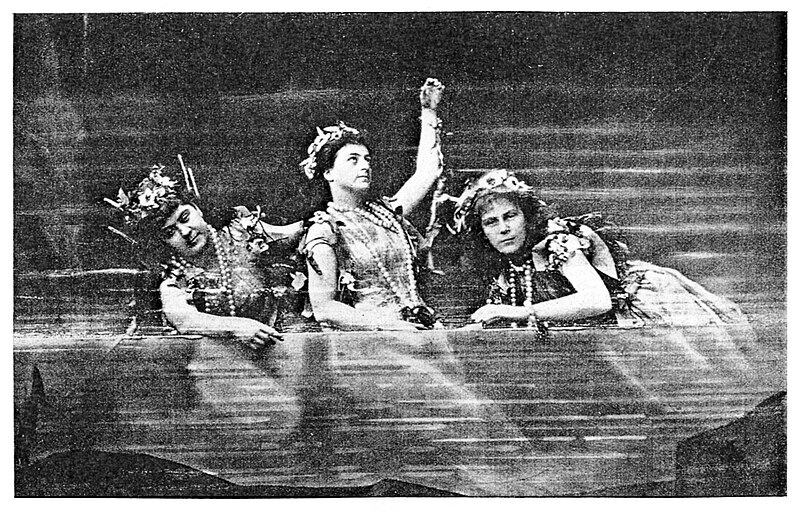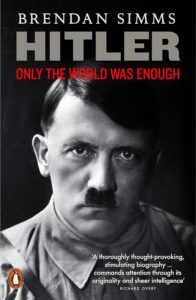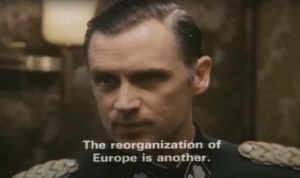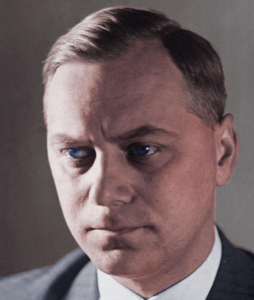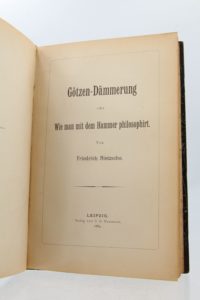Although forced to the shadows by growing public opprobrium, the “brutal and vicious” Morgenthau Plan for Germany was never actually abandoned by Franklin Roosevelt. Indeed, until his death in April, 1945, the American president had secretly favored the “Carthaginian” approach for the conquered Reich. When Roosevelt’s successor, Harry Truman, met with Soviet strongman, Josef Stalin, and the new British prime minister, Clement Attlee, outside of Berlin at Potsdam in the summer, 1945, most of the teeth in Morgenthau’s murderous scheme remained on the table. With the signature of the “Big Three,” the plan went into effect.
“It is not the intention of the Allies,” argued the joint declaration, “to destroy or enslave the German people.” Virtually word for word, a similar declaration was directed at Japan, then on the verge of total collapse. Despite such solemn pronouncements meant to mollify a watching world, it soon became abundantly clear, first to the Germans, then to the Japanese, that the victors came not as peaceminded “liberators,” as propagandists were wont to declare, but as conquerors fully as ruthless, vengeful and greedy as any who ever won a war.
The plundering of Germany by the Soviet Union first began when the Red Army penetrated East Prussia in late 1944. With war’s end the following year, Stalin’s methodical looting in the Russian Occupation Zone now became prodigious. Steel mills, grain mills, lumber mills, sugar and oil refineries, chemical plants, optical works, shoe factories, and other heavy industries were taken apart down to the last nut and bolt and sent east to the Soviet Union where they were reassembled. Those factories allowed to remain in Germany were to operate solely for the benefit of Moscow.
Electric and steam locomotives, their rolling stock, and even the tracks they ran on were likewise sent east. While the Soviet government pillaged on a massive scale, the common Red soldier was even more meticulous.
“The Russians systematically cleared out everything, that was for them of value, such as all sewing machines, pianos, grand-pianos, baths, water taps, electric plants, beds, mattresses, carpets, etc.,” itemized one woman from eastern Germany. “They destroyed what they could not take away… Not in a single village did one see a cow, a horse or a pig… The Russians had taken everything away to the east, or used it up.”
Like millions of other refugees, Regina Shelton managed her way home at the end of the war. Also like millions of other refugees, the woman was warned of the utter devastation she would find in the wake of the Soviets.
Thus we expect the worst, but our idea of the worst has not prepared us sufficiently for reality. Shocked to the point of collapse, we survey a battlefield-heaps of refuse through which broken pieces of furniture rise like cliffs; stench gags us, almost driving us to retreat. Ragged remnants of clothes, crushed dishes, books, pictures torn from frames, —rubble in every room… Above all, the nauseating stench that emanates from the largest and totally wrecked living room! Spoiled contents oozes from splintered canning jars, garbage of indefinable origin is mixed with unmistakable human excrement, and dried stain of urine discolors crumpled paper and rags.
Americans were not far behind their communist counterparts and what was not wantonly destroyed, was pilfered as “souvenirs.”
“We ‘liberated’ German property,” winked one GI. “The Russians simply stole it.”
Unlike its Soviet ally which had been bled white by nearly thirty years of Marxism, the United States had no need for German plants and factories. The Reich’s hoard of treasure, however, was another matter. Billions of dollars in gold, silver and currency, as well as priceless paintings, sculptures and other art works were plucked from their hiding places in caves, tunnels and salt mines and shipped across the Atlantic. Additionally, and of far greater damage to Germany’s future, was the “mental dismantling” of the Reich. Tons of secret documents revealing Germany’s tremendous organizational talent in business and industry were simply stolen, not only by the Americans, but by the French and British. Hundreds of the greatest scientists in the world were likewise “encouraged” to immigrate by the victors. As one US Government agency quietly admitted, “Operation Paper-Clip” was the first time in history wherein conquerors had attempted to drain dry the creative power of an entire nation.
“The real gain in reparations of this war,” Life magazine openly confessed, was not in factories, treasure or artwork, but “in the German brains and in the German research results.”
While the Soviet Union came up short on German scientists and technicians simply because most had wisely fled and surrendered to the West, Russia suffered no shortage of slave labor. Added to the mil lions of native dissidents, repatriated refugees and Wehrmacht prisoners toiling in the gulags, were millions of German civilians snatched from the Reich. As was commonly the case, those who were destined to spend years or their entire lives in slavery were given mere minutes to make ready. In cities, towns and villages, posters suddenly appeared announcing that all able-bodied men and women were to assemble in their local square at a given time or face arrest and execution.
“The screaming, wailing and howling in the square will haunt me the rest of my life,” remembered one horrified female. “Mercilessly the women were herded together in rows of four. Mothers had to leave tiny children behind. I thanked God from the bottom of my heart that my boy had died in Berlin shortly after birth… The wretched victims [were] then set in motion to the crack of Russian whips.”
For those forced east on foot, the trek became little better than a death march. Thousands dropped dead in their tracks from hunger, thirst, disease, and abuse. “It took all of our remaining strength to stay in the middle of the extremely slow-moving herds being driven east,” said Wolfgang Kasak. “We kept hearing the submachine guns when ever a straggler was shot… I will never forget… the shooting of a 15-year old boy right before my very eyes. He simply couldn’t walk anymore, so a Russian soldier took potshots at him. The boy was still alive when some officer came over and fired his gun into the boy’s ear.”
“One young girl jumped from a bridge into the water, the guards shot wildly at her, and I saw her sink,” recalled Anna Schwartz. “A young man, who had heart-disease, jumped into the Vistula. He was also shot… Thirst was such a torture, and we were so tired.”
Those who traveled by rail to Siberia fared even worse. With standing room only, small, filthy freight cars were commonly crammed with over one hundred people each. After a suffocating trip of 20 or 30 days, with starvation, thirst, beatings, and rape every mile of the way, fully one third to one half of the passengers were dead when the trains reached their termini. And of those who stepped down, all, thought one viewer, more resembled “walking corpses” than living humans.
“Now the dying really began…,” as Anna Schwartz recollected.
The huts, in which we were quartered, were full of filth and vermin, swarms of bugs overwhelmed us, and we destroyed as much of this vermin as we could. We lay on bare boards so close together, that, if we wanted to turn round, we had to wake our neighbors to the right and left of us, in order that we all turned round at the same time. The sick people lay amongst us, groaning and in delirium… Typhoid and dysentery raged and very many died, but death meant rather release than terror to them. The dead were brought into a cellar, and when this was full up to the top, it was emptied. Meanwhile the rats had eaten from the corpses, and these very quickly decayed… Also the wolves satisfied their hunger.
While Anna’s camp worked on a railroad and was driven day-in, day-out “like a herd of draught animals,” and while others toiled in fields, factories, bogs, and lumber camps, thousands more were relegated to the mines.
“We sometimes had to remain as much as 16 hours down in the pit,” recounted Ilse Lau. “When we had finally finished our work by summoning up our last strength, we were not allowed to go up in the lift, but had to climb up the ladders (450 feet). We were often near to desperation. We were never able to sleep enough, and we were always hungry.”
At one large coal camp, fifteen to twenty-five people died every day. Each night the corpses were carried out and dumped without ceremony into a mass grave.
Despite the never-ending nightmare, Christians still gathered for a few minutes on each Sunday to renew their faith.
“Often a commissar came and shouted out: ‘That won’t help you!’” remembered Gertrude Schulz. But it did.
Just as faith in the Almighty was often the thin divide which separated those who lived from those who died, so too did simple acts of kindness offer strength and rays of hope in an otherwise crushing gloom. As Wolfgang Kasak and his comrades stood dying of thirst one day, a Russian woman appeared with buckets of water.
“The guards drove the woman away,” Kasak said. “But she kept on bringing water, bucket after bucket, to the places where no Russians were standing guard. I know now the Russian soldiers closed one eye and took a long time in following their orders to keep the woman from giving us something to drink.”
Siegfried Losch, a youth who had become a recruit, soldier, veteran, deserter, prisoner, and slave before he had seen his eighteenth year, was hard at work one Sunday morning when an old grandmother approached. Judging by her clothes, she was very poor. Judging by her limp she was crippled. Indeed, thought Losch, the old woman looked like the witch from Hansel and Gretl. But the grandmother’s face was different.
The face emanated… warmth as only a mother who has suffered much can give. Here was the true example of mother Russia: Having suffered under the Soviet regime, the war, having possibly lost one or more of her loved ones… She probably was walking toward her church. When she was near me, she stopped and gave me some small coins… Then she made a cross over me with tears in her eyes and walked on. I gave her a “spasibo” (thank you!) and continued my work. But for the rest of the day I was a different person, because somebody cared, somebody let her soul speak to me.
Precious as such miracles might be, they were but cruel reminders of a world that was no more. “We were eternally hungry,” recalled Erich Gerhardt. “Treatment by the Russian guards was almost always very bad. We were simply walking skeletons… From the first to the last day our life was a ceaseless suffering, a dying and lamentation. The Russian guards mercilessly pushed the very weakest people forward with their rifle-butts, when they could hardly move. When the guards used their rifle-butts, they made use of the words, ‘You lazy rascal.’ I was already so weak, that I wanted to be killed on the spot by the blows.”
“We were always hungry and cold, and covered with vermin,” echoed a fellow slave. “I used to pray to God to let me at least die in my native country.”
Cruelly, had this man’s prayers been answered and had he been allowed to return to Germany, the odds were good indeed that he would have died in his homeland… and sooner than he imagined. Unbeknownst to these wretched slaves dreaming of home, the situation in the former Reich differed little, if any, from that of Siberia. Indeed, in many cases, “life” in the defeated nation was vastly worse.
______________
Note of the Editor: Here you can request an item of the ‘Hellstorm Holocaust’ package (the biggest secret in modern history: the Allied genocide of Germans after 1945), and here you can order Tom Goodrich’s other books.


